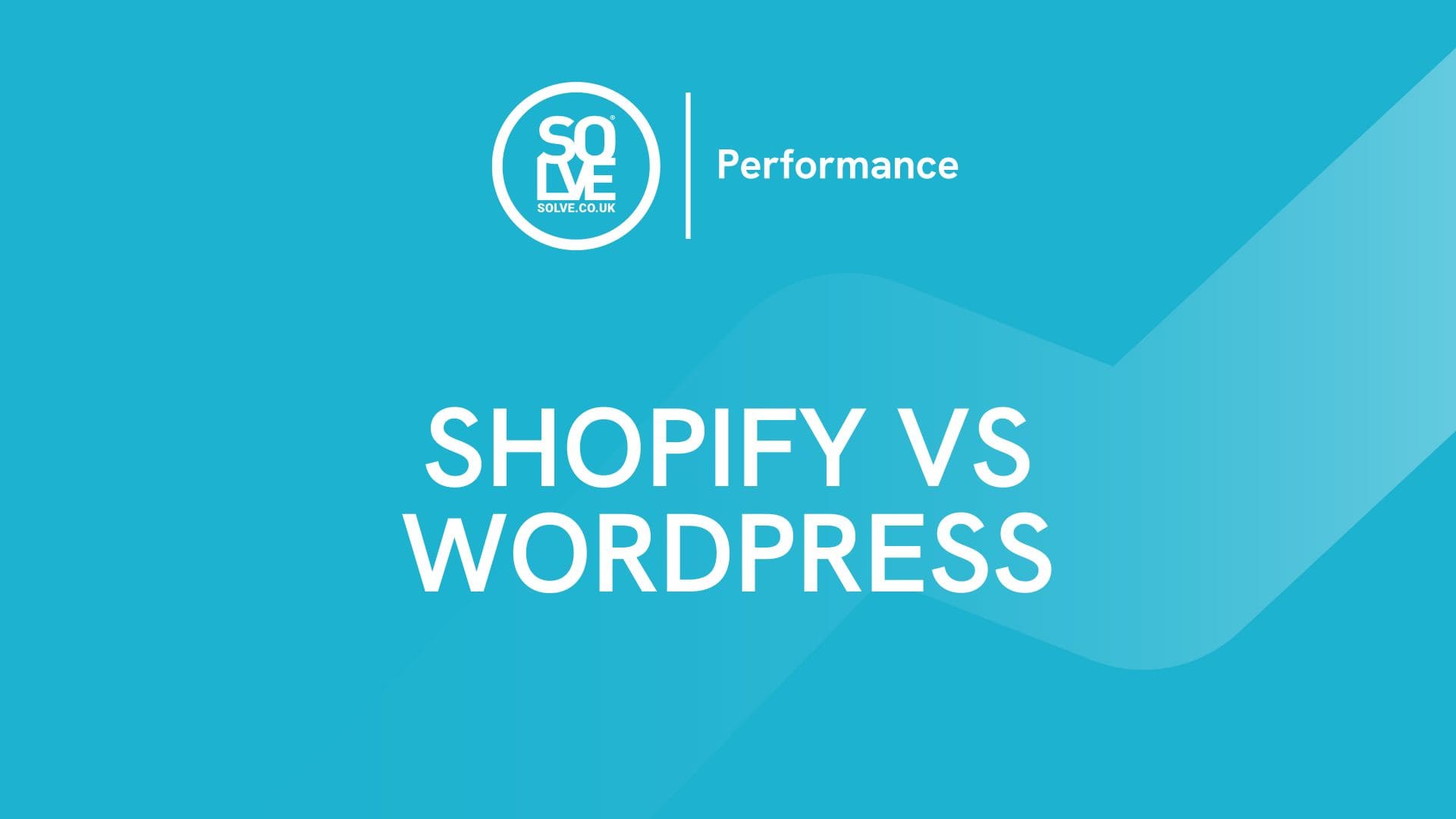Shopify excels in e-commerce functionalities, while WordPress offers more flexibility and customization. The choice depends on your specific needs.
Shopify and WordPress are two of the most popular platforms for building websites in 2024. Shopify specializes in e-commerce, making it ideal for online stores. It comes with built-in tools for managing products, payments, and shipping. WordPress, on the other hand, is a versatile content management system.
It allows extensive customization through themes and plugins. Both platforms have their strengths and weaknesses. Shopify is easier for beginners with its user-friendly interface. WordPress requires more technical knowledge but offers greater flexibility. Understanding your requirements will help you choose the right platform for your business.

Ease Of Use
Deciding between Shopify and WordPress can be tough. Both offer unique features. This section explores how easy each platform is to use.
User Interface
Shopify boasts a clean, intuitive user interface. It simplifies the process for beginners.
- Drag-and-drop functionality
- Pre-designed templates
- Easy customization options
WordPress offers a more complex interface. It suits users with some technical skills.
- Customizable themes and plugins
- Rich text editor for posts and pages
- Advanced settings for detailed control
Learning Curve
Shopify’s learning curve is shallow. Most users can set up a store quickly.
- Sign up for an account
- Choose a template
- Add products and start selling
WordPress has a steeper learning curve. It requires some knowledge of coding and plugins.
- Purchase a domain and hosting
- Install WordPress
- Customize themes and install plugins
| Feature | Shopify | WordPress |
|---|---|---|
| User Interface | Simple and intuitive | Complex but customizable |
| Learning Curve | Beginner-friendly | Requires technical skills |
Choosing between Shopify and WordPress depends on your skill level. Both offer unique advantages.

Design And Customization
Choosing the right platform for your online store is vital. Design and customization play a significant role in this decision. Both Shopify and WordPress offer unique features. Let’s dive into their design and customization options.
Themes And Templates
Shopify provides a variety of premium and free themes. These themes are designed by professional developers. Each theme is mobile-responsive and optimized for performance. Users can easily switch between themes without losing data.
WordPress, with its vast library of themes, offers unparalleled diversity. Users can choose from thousands of free and premium themes. WordPress themes are often more customizable. You can tweak them to match your brand’s identity.
| Feature | Shopify | WordPress |
|---|---|---|
| Number of Themes | 80+ | Thousands |
| Mobile-Responsive | Yes | Depends on the theme |
| Customization Ease | High | Very High |
Customization Options
Shopify’s customization options are straightforward. Users can adjust settings through a user-friendly interface. It offers drag-and-drop functionality for easy design changes.
WordPress excels in customization flexibility. Users can modify everything using themes and plugins. For advanced users, custom code can be added for further customization. This makes WordPress a favorite for those wanting complete control.
- Shopify: Simple interface, Drag-and-drop builder, Limited by theme structure
- WordPress: Highly flexible, Requires more technical knowledge, Endless customization possibilities
In conclusion, both platforms have their strengths. Shopify is great for ease of use and efficiency. WordPress offers unmatched flexibility and control.
E-commerce Features
Both Shopify and WordPress offer robust e-commerce features. These features help businesses sell online. Let’s compare their e-commerce capabilities in detail.
Product Management
Shopify offers a user-friendly interface for product management. You can easily add, edit, and organize products. Bulk product editing saves time. Shopify also supports multiple product images. You can manage inventory and track stock levels.
WordPress, with WooCommerce, provides flexible product management. You can add various product types. These include simple, variable, grouped, and external products. WooCommerce supports custom attributes and tags. You can also manage stock and backorders.
| Feature | Shopify | WordPress (WooCommerce) |
|---|---|---|
| Product Types | Simple, Variable | Simple, Variable, Grouped, External |
| Inventory Management | Yes | Yes |
| Bulk Editing | Yes | No |
Payment Gateways
Shopify supports over 100 payment gateways. Popular options include PayPal, Stripe, and Shopify Payments. Shopify Payments has no transaction fees. Other gateways might have fees.
WordPress with WooCommerce supports many payment gateways. You can use PayPal, Stripe, and Square. Some gateways require plugins. There might be additional costs for these plugins.
| Feature | Shopify | WordPress (WooCommerce) |
|---|---|---|
| Payment Gateways | 100+ | Many (depends on plugins) |
| Transaction Fees | No (with Shopify Payments) | Depends on gateway |
| Setup | Easy | Varies |
Seo And Marketing Tools
Choosing between Shopify and WordPress often depends on their SEO and marketing tools. Both platforms have unique strengths in these areas. This comparison will help you decide the best fit for your needs.
Seo Capabilities
Shopify offers basic SEO features out-of-the-box. You can easily edit meta tags, product descriptions, and URLs. Shopify’s built-in analytics help track your SEO performance. Apps like SEO Manager and Plug in SEO enhance functionality.
WordPress excels with its extensive SEO plugins. Yoast SEO and All in One SEO Pack are popular choices. These plugins guide you through optimizing each post and page. WordPress also allows for more advanced customization. You can edit your site’s code for better SEO control.
| Feature | Shopify | WordPress |
|---|---|---|
| Meta Tags | Editable | Editable |
| SEO Plugins | Limited | Extensive |
| URL Customization | Yes | Yes |
| Analytics | Built-in | Plugin-based |
Marketing Integrations
Both platforms offer various marketing integrations to boost your business. Shopify has built-in email marketing tools. You can integrate apps like Mailchimp and Klaviyo. Social media integration is seamless with apps for Facebook and Instagram.
WordPress provides flexibility with numerous plugins. Mailchimp for WordPress and WPForms are popular choices. You can also integrate social media tools like Revive Old Posts. These plugins automate and enhance your marketing efforts.
- Shopify
- Email marketing tools
- Social media apps
- Discount and coupon codes
- WordPress
- Numerous marketing plugins
- Social media automation tools
- Advanced email marketing
Performance And Security
When comparing Shopify and WordPress, two key factors stand out: performance and security. These elements are crucial for any online store’s success. Let’s dive into the details.
Site Speed
Site speed impacts user experience and SEO rankings. Shopify is a hosted platform. It optimizes server settings and infrastructure. This ensures fast loading times. WordPress relies on third-party hosting. Site speed varies based on the chosen host and configurations.
Here is a quick comparison:
| Platform | Average Loading Time |
|---|---|
| Shopify | 1.3 seconds |
| WordPress | Varies (1-3 seconds) |
Shopify offers built-in caching and a CDN. WordPress requires additional plugins for these features.
Security Measures
Security is vital for online stores. Shopify provides robust security measures. It includes SSL certificates and PCI compliance. Shopify manages server maintenance and updates.
WordPress security depends on the site owner. You need to install security plugins. Regular updates are crucial to protect the site.
Key security features comparison:
- Shopify: SSL, PCI compliance, automatic updates
- WordPress: SSL (via hosting), manual updates, security plugins needed
In conclusion, Shopify offers more built-in security. WordPress offers flexibility but requires more maintenance.
Pricing And Value
Understanding the pricing and value of Shopify and WordPress is essential. Both platforms offer different pricing structures and value propositions. This section will break down the costs and analyze the value each platform provides.
Cost Comparison
Comparing the costs of Shopify and WordPress can help you make a decision. Here’s a detailed breakdown:
| Platform | Basic Plan | Advanced Plan | Additional Costs |
|---|---|---|---|
| Shopify | $29/month | $299/month | Transaction fees, Apps |
| WordPress | Free (with hosting costs) | $25/month (with hosting) | Themes, Plugins |
Value For Money
Analyzing the value for money is crucial for choosing a platform. Both Shopify and WordPress offer unique benefits:
- Shopify: Easy setup, built-in eCommerce features, 24/7 support.
- WordPress: Customizable, extensive plugin library, control over hosting.
Shopify’s pricing includes hosting, security, and support. WordPress users may need to buy hosting, themes, and plugins.
Shopify users benefit from an integrated solution. WordPress offers flexibility and customization.
Both platforms provide value, but the choice depends on individual needs.
Customer Support
In the world of e-commerce, customer support is crucial. It helps resolve issues and keeps customers happy. Both Shopify and WordPress offer support, but they differ. Let’s explore their support options in 2024.
Support Channels
Shopify offers several support channels to assist users. These include:
- 24/7 Live Chat
- Phone Support
- Email Support
- Community Forums
- Help Center
WordPress support varies. It’s open-source, so you get different options. The main channels include:
- Community Forums
- Third-Party Support (via plugins and themes)
- Documentation
- Paid Support Services
Quality Of Service
The quality of service provided by Shopify is consistent and reliable. Users often praise their 24/7 availability and quick response times. Shopify’s support team is well-trained, offering expert help.
WordPress support quality depends on the provider. Free support from forums and documentation can be hit or miss. Paid services from third-party providers usually offer better quality.
| Platform | Support Channels | Quality of Service |
|---|---|---|
| Shopify |
|
|
| WordPress |
|
|

Pros And Cons
Choosing between Shopify and WordPress in 2024 can be tough. Understanding the pros and cons helps make an informed decision. This section explores the advantages of each platform.
Advantages Of Shopify
Shopify offers a seamless experience for e-commerce businesses. Here are the main benefits:
- Ease of Use: Shopify is user-friendly. It requires no technical skills.
- Security: Shopify provides robust security features. Your store stays protected.
- Customer Support: 24/7 support is available. Help is just a call away.
- App Integrations: Shopify has many apps. Enhance your store with ease.
Advantages Of WordPress
WordPress is a versatile platform. It offers multiple benefits for various website needs:
- Customization: WordPress is highly customizable. Use plugins and themes to tailor your site.
- SEO-Friendly: WordPress offers excellent SEO tools. Boost your search engine rankings effortlessly.
- Content Management: WordPress excels in content management. It’s perfect for blogs and articles.
- Cost-Effective: WordPress can be more affordable. Many free plugins and themes are available.
Here is a quick comparison table for a better understanding:
| Feature | Shopify | WordPress |
|---|---|---|
| Ease of Use | Very Easy | Moderate |
| Security | High | Variable |
| Customization | Limited | Extensive |
| SEO | Good | Excellent |
| Support | 24/7 | Community-Based |
Frequently Asked Questions
Which Is Better For E-commerce, Shopify Or WordPress?
Shopify is generally better for e-commerce due to its specialized tools. WordPress offers more flexibility but requires additional plugins for e-commerce functionality.
Is WordPress Cheaper Than Shopify?
WordPress can be cheaper than Shopify, especially for basic sites. However, additional costs for plugins, themes, and hosting can add up.
Can I Migrate From Shopify To WordPress?
Yes, you can migrate from Shopify to WordPress using various tools and plugins. The process requires technical knowledge and planning to ensure a smooth transition.
Does Shopify Offer Better Customer Support Than WordPress?
Shopify offers 24/7 customer support via chat, email, and phone. WordPress support depends on the hosting provider and community forums, which may not be as comprehensive.
Conclusion
Choosing between Shopify and WordPress depends on your needs. Shopify offers ease of use and robust e-commerce features. WordPress provides flexibility and extensive customization options. Both platforms have their strengths. Evaluate your specific requirements and budget to make the best decision.
Either way, you’ll have a powerful tool to build your online presence.
